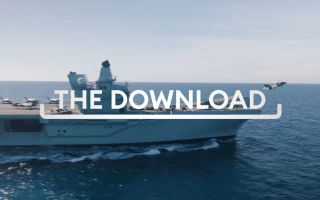Keeping the peace with KFOR: My time on patrol with British soldiers in Kosovo
"You can't surrender to a drone while it's trying to drop a grenade on your head."
It was a good point, made by the twenty-something infanteer I was travelling alongside in the back of a civilian SUV. We were in the middle of a lengthy patrol in northern Kosovo, and the young man was sharing his thoughts on aspects of the Ukraine War.
It was just one of the many conversations used to pass the time as the patrol entered its third hour. By then, we'd already covered the US election, Tyson Fury's chances against Oleksandr Usyk and the question of ministers accepting free tickets to football matches.
- KFOR: The Nato task force that's been keeping the peace in Kosovo for 25 years
- Two hundred British Army troops arrive in Kosovo for Nato peacekeeping mission
- Kosovo War: Remembering 25 years since peace was established by Nato in 1999
KFOR personnel in Kosovo spend hours daily journeying to specific parts of the country to conduct visible and not-so-visible patrols.
Right now, alongside other UK units deployed on the Nato mission, known internally as Op Elgin, it's the turn of 1st Battalion The Royal Yorkshire Regiment, the current holder of Reserve Force duties for Nato.
It's an approximately two-month operation which enables the battalion to test its ability to deploy to Kosovo with all the equipment and manpower needed to conduct operations in the country.

The tour began with a history-making road move along Corridor Eight, a strategic communication route across the Balkans that Nato can use to project force.
By using the route, the soldiers of 1 R Yorks became the first Nato troops to convoy along it.
Soon, the deployment will end and the soldiers will return home. But as the Reserve Force, it can be called back to Kosovo at a moment's notice should relations between the Kosovans and Serbs break down.
Those questioning the likelihood of that happening 25 years on from the war ending need only be told that just 12 months ago flare-ups between communities in northern Kosovo resulted in Nato calling up its reserve troops.
Surprisingly, it was the Royal Yorkshire Regiment that supplied the extra troops back then, too.
Petrit Selimi is a former foreign affairs minister in Kosovo. He told me about the current state of relations between the two nations.
"These last years we are experiencing a time of polarisation," he said.
"I don't know if it's social media or politicians being a little more populist than they used to be before.
"Certainly, in Serbia, there's a new guy called Vučić and he's a little bit more on the nationalistic side, echoing some of the Milošević discourse."
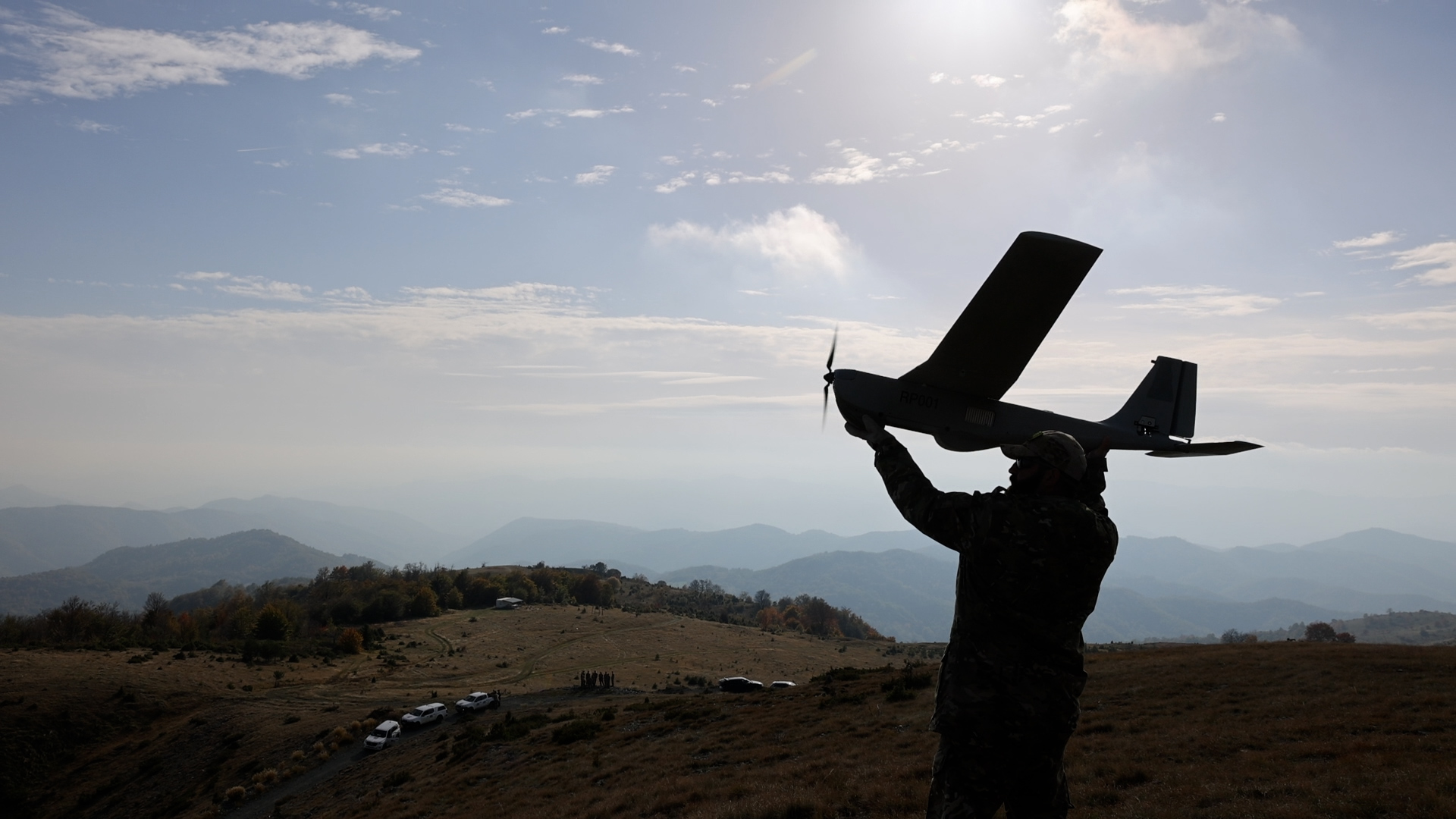
In the 1990s, Belgrade imposed direct rule on Kosovo. Ninety-five per cent of those living there were ethnic Kosovar Albanians, yet Serbian President Slobodan Milošević viewed Kosovo as firmly part of Serbia.
Milošević’s treatment of Kosovans led to the formation of the Kosovo Liberation Army, known as the KLA, which began to fight back against his Serbian forces.
But Milošević responded with brute force, ordering his generals to attack the KLA and not limit those actions to military targets.
His orders resulted in appalling acts of violence on civilians, including atrocities that would eventually lead to Milošević being charged with war crimes.
"War in 1998 and 1999 started over acts of terrible atrocities," Mr Selimi said.
"Milošević started an operation of ethnic cleansing. Western countries, even Russia and others, were trying to impose a peace solution.
"Unfortunately, Milošević was not a person that wanted to do a peace deal. And he increased the violence with some really gruesome types of attacks against the civilian population.
"Children were slaughtered, women were raped. This was really a tremendous burst of intensive violence."
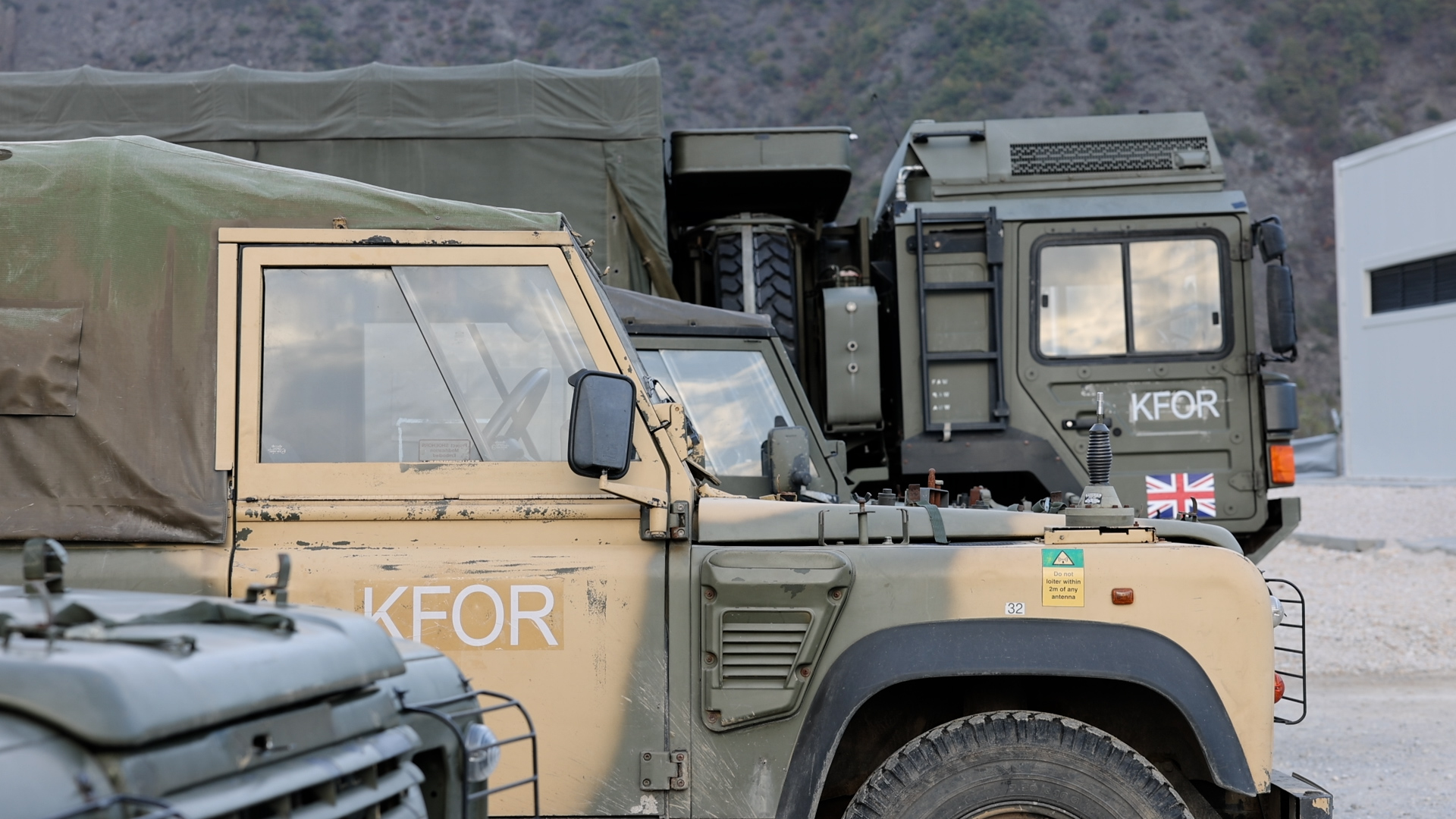
I had been aware of the war in Kosovo as a child. In 1999, I was 12 years old and already weighing up a career in the Armed Forces. Therefore, I likely gave the evening news more attention than most typical children my age.
Indeed, when I joined the Army four years later, I found myself in a military that was still largely populated by soldiers who had served in the Balkans throughout the 1990s. And they had stories to tell.
But I never got the chance to go there. So when the opportunity came up to spend four days in Kosovo embedded with the Royal Yorkshire Regiment, I jumped at the chance and truly relished my time in the country.
Yet it occurred to me soon after we arrived that many of the soldiers on the deployment were not even born when the Kosovo War took place.
I wondered how much knowledge they had about the reasons behind their deployment here, 25 years on from that terrible war.
It turned out they knew quite a lot.
Off camera, and therefore off the record, I found it easy to talk to soldiers about what they knew about Milošević, the crimes that were committed and the eventual Nato action that brought about the end of the war.
However, it was much more difficult to get the soldiers talking on camera about their understanding of the history. Partly, that was due to their press minders not wanting soldiers discussing what is an uncomfortable history, particularly when tensions remain present today.
But part of it was, I felt, because to some it didn't really matter why they were there. Simply put, their responsibilities in Kosovo were just another job, more orders to follow passing the weeks until it was time to return home.
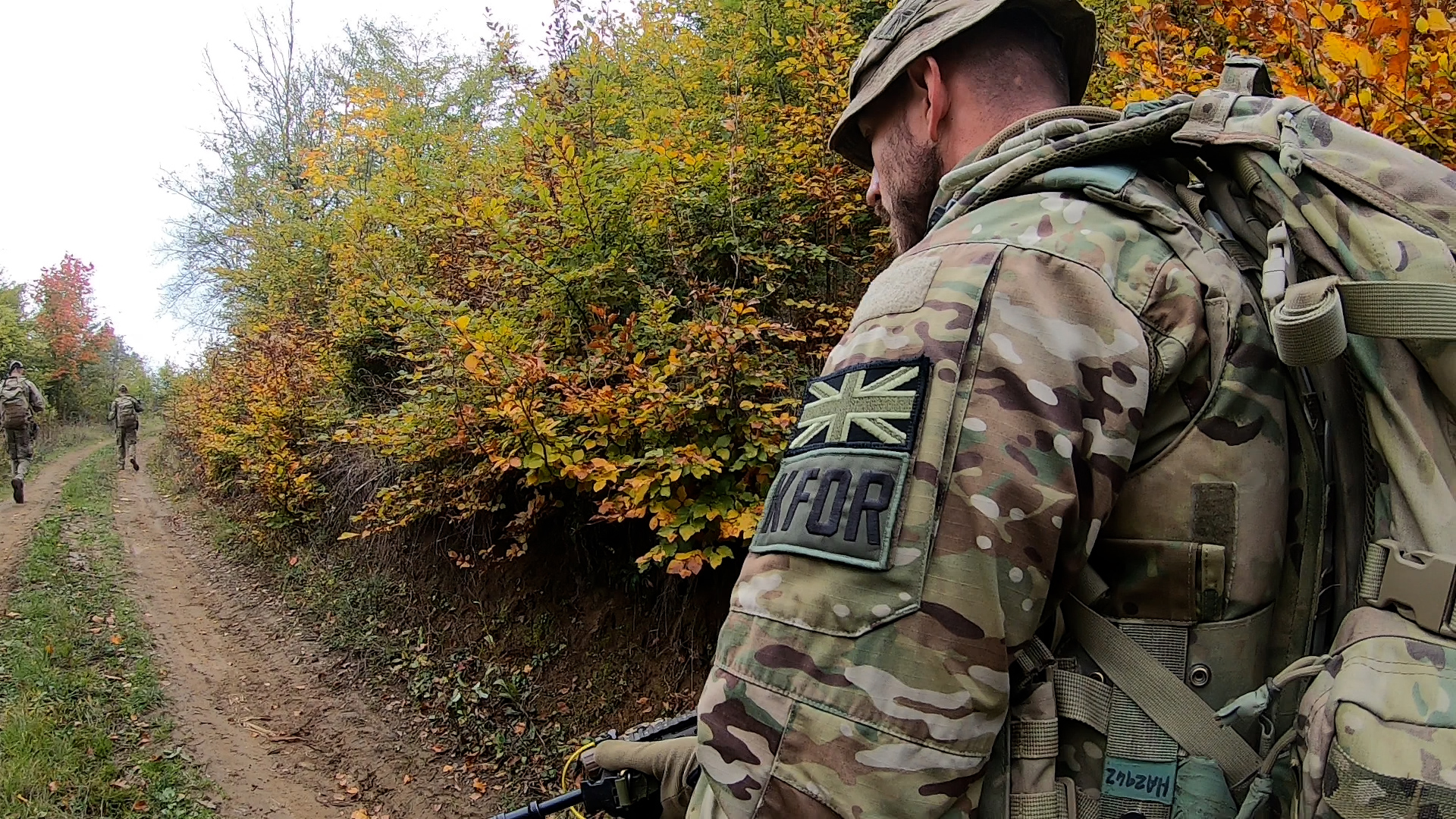
On our second day in Kosovo, we travelled to the north of the country and close to the Administrative Boundary Line, or ABL, which is deliberately not referred to as a border, as to do so may ignite anger in those who still view Kosovo as part of Serbia.
We patrolled by foot through a forest and reached some wooden huts where, according to the patrol commander Sergeant Daniel Emmett, a recent US patrol had uncovered a weapons cache.
Unexpectedly, a man in a small hatchback car arrived on scene in a rush while Sgt Emmett and his men were looking around the outside of the huts.
Nato personnel are forbidden to force entry into buildings themselves, instead, they must call upon the Kosovo police if they have suspicions of nefarious activities.
After some strained chit-chat between the soldiers and the man, who didn't speak English, the Royal Yorks personnel decided to move on. If the guy had arrived to spark a desire in the soldiers to leave, he had succeeded.
Afterwards, Sgt Emmett explained to me how he found it a "bit convenient" that the man in the car turned up just as his patrol was conducting a search of the area.
"They're old smuggling huts in there. They’ve been caught before so we tend to keep our eye on them," the senior NCO said.
I couldn't help but feel that if I lived a few miles away from a country that might one day come over the hill and invade, I too might be minded to keep a stash of rifles locked up in a shed – just in case.
But this is precisely why Nato is in this region, keeping the peace and doing so visibly.
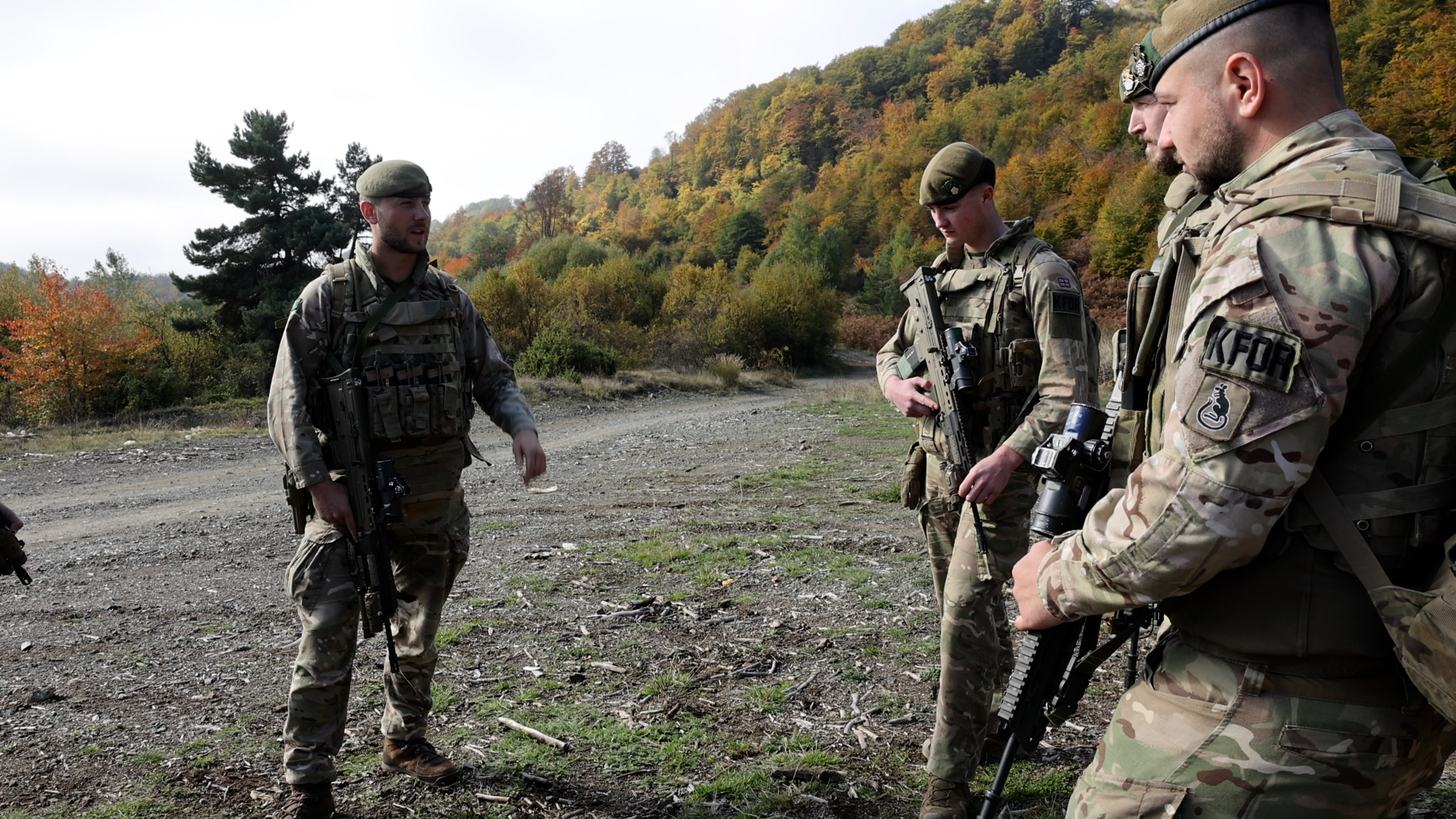
The work of the Royal Yorkshire Regiment in Kosovo is very much nuts and bolts infantry.
The soldiers are tabbing up and down mountains continuously, carrying their belt kit and weapons, conducting OPs and manning vehicle checkpoints close to the ABL.
Sometimes they arrive at a location by helicopter – US Black Hawks – sometimes they are vehicle-based solely – patrols that can last up to 10 hours.
There's little downtime between taskings, and the facilities they have access to at the two bases they primarily operate out of can only be described as basic.
On this last point, I found it surprising that the soldiers were having to make do living in large 40-man tents with minimal privacy, sharing a handful of showers between all ranks.
Is it really too much for Nato to provide its personnel with better facilities? After all, the mission has now entered its 26th year. It all seems so temporary.

Many are experiencing their first overseas deployment. One such rookie is 18-year-old Private Billy Broadhurst, who's just nine months out of training.
Billy explained to me how the tour was going well for him personally, making me laugh when he announced he hadn't "messed up yet, so that's quite good".
He said: "It's pretty cool. I'm getting to do things that most people don't get to do.
"I've just come out of training and I'm already getting a medal and seeing the world.
"It's pretty interesting the stuff we’re doing out here. It's like everything you do through training, you're actually using."
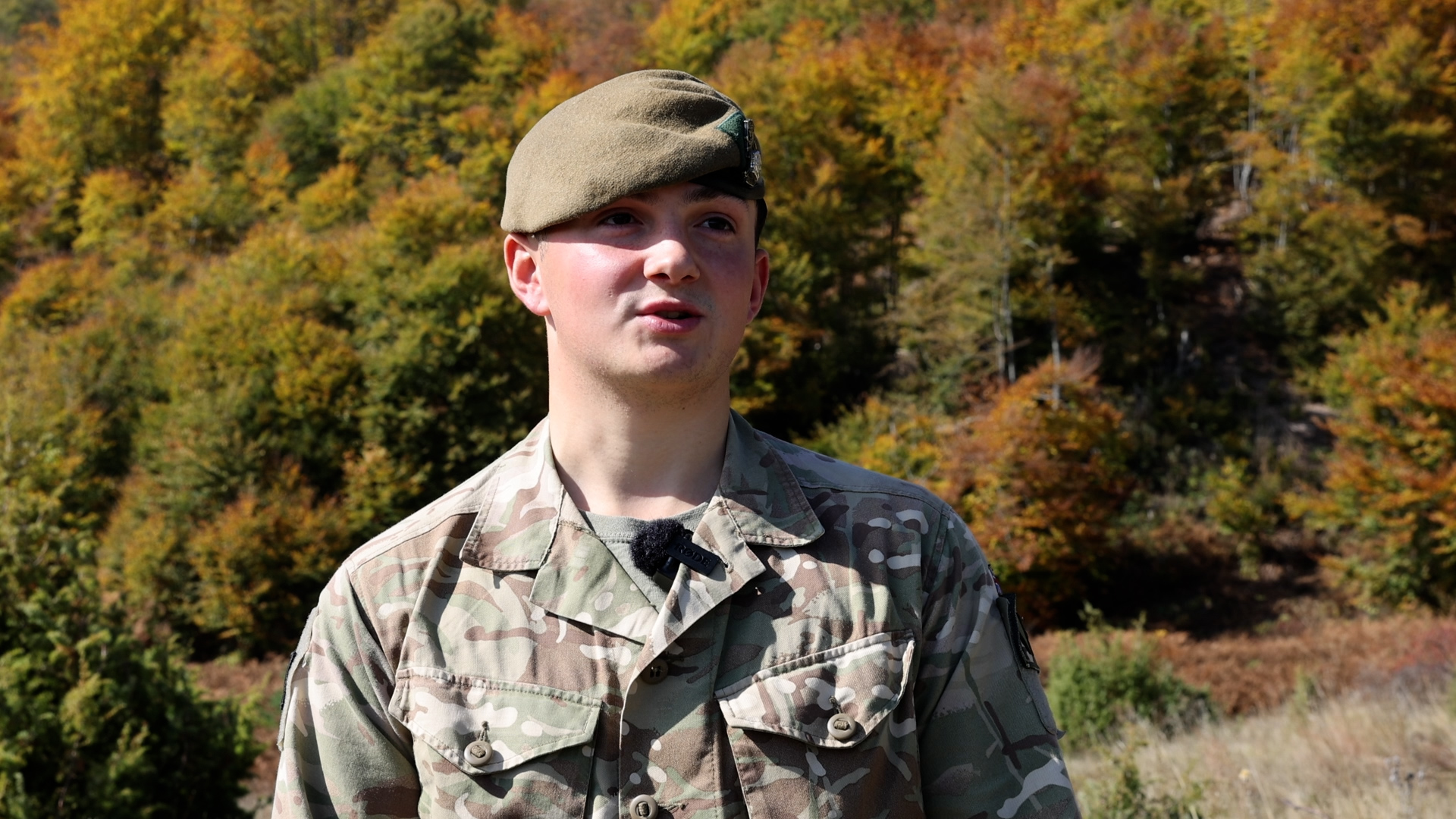
It's rather remarkable to think that soldiers like Billy are needed in Kosovo more than a quarter of a century after the war concluded, even 16 years after Kosovo became recognised as a country internationally.
Some nations choose not to recognise it still, of course, which is perhaps the biggest hint as to the reason why Nato has to remain here in 2024.
It may yet be some time before British soldiers like Billy and his mates in the Royal Yorkshire Regiment can take Kosovo off their list of probable deployments.
Given the volatile nature of global geopolitics, some of which play a direct role in influencing stakeholders in the Kosovo-Serbia dispute, KFOR, Nato's largest and longest mission in its history, looks set to continue for some time.
Perhaps it isn't out of the question that KFOR will be in Kosovo for another 25 years.
Maybe by then, they'll have built the troops some decent showers.




